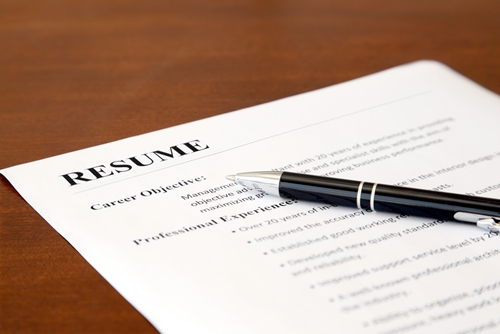We all know the importance of getting your resume just right: A perfect resume can be a one-way ticket to the next step in your career. However, around a quarter of hiring managers say they receive more than 50 resumes for each job opening, according to Career Builder, which means that even if your resume is just fine, it may not be good enough to stand out from the crowd. Before you immerse yourself in job hunting, sit down with your resume and make sure it includes these key features:
A clear and simple layout
No hiring professionals are going to want to wade through odd formatting, fonts and designs to get to the important information hiding beneath. In fact, when hiring managers are going through resumes, a hard-to-read one may get tossed for that factor alone. Even if you’re a professional graphic designer, make sure your format is clear and simple to understand, with the most important information upfront.
Contact information
These days your name, email and phone number alone aren’t going to cut it. I’d recommend adding your LinkedIn, Twitter and personal webpage information as well. More often than not, hiring managers are going online to learn about all of their potential candidates, so use this to your advantage. Make your social media pages easy to access, and use them as a platform to market yourself and your achievements.
Effective keywords
Your resume should be sprinkled with clear, effective and easy-to-read keywords that pertain directly to the jobs you’re applying for. Peruse the job listings to find out what they’re looking for in candidates, and pull keywords like “problem solving,” “written communication” and more to use in your resume. Just make sure you can back up the keywords you’re using with specific examples.
Achievements
A common resume mistake people make is believing that hiring managers are looking for job descriptions, but what they really want to see are quantifiable achievements. Instead of writing wordy paragraphs for each job, use bullet points to detail your accomplishments, and attach them to numbers whenever possible. For example, instead of saying, “Led a sales team for significant project,” say “Led a team of 12 to gain over 8 percent in overall company revenue in the first quarter.”
Customization
Your keywords shouldn’t be the only thing on your resume that reflect the job you’re applying for. As with the keywords you use, the experience, skills and achievements listed should all be things that your potential employer would find valuable. If you’re just starting out and don’t have the luxury of choosing between several jobs to include, think about any skills or experience you gained in each position that could be applied to what the hiring manager is looking for.
Add-ons
Remember that the resume should be one part of a whole hiring “packet” that you send to potential jobs. Include a cover letter (written on personalized stationery for added professionalism), and don’t forget to bring hard copies of your resume, cover letter and even some personal business cards to every interview you attend.

